Beyond the Buzz: A Deep-Dive Into Black Rifle Coffee and What It Means for the Specialty Coffee Landscape (with Insights from Bazan Coffee)
If you're an American coffee drinker, chances are you've heard of Black Rifle Coffee a brand as bold in flavor as it is in identity. Known for its veteran-owned roots, tactical branding, and high-octane blends, Black Rifle Coffee Company has built a cult following. But beyond the marketing, how does it actually compare to other specialty coffees especially ethically sourced, high-quality producers like Bazan Coffee?
In this expert-reviewed article, we analyze Black Rifle Coffee from multiple angles, including its product line, ownership, caffeine content, sourcing, and ethical transparency. Drawing from credible sources such as the Specialty Coffee Association (SCA), Coffee Quality Institute (CQI), World Coffee Research, and flavor analytics from Barista Hustle, this guide helps readers make informed choices about one of America’s most polarizing coffee brands.
What Is Black Rifle Coffee Company?
Founded in 2014 by former Green Beret Evan Hafer, Black Rifle Coffee Company markets itself as a veteran-owned, pro-military, pro-Second Amendment business. Hafer’s personal military background, combined with bold social messaging, helped catapult the brand to popularity especially among conservative-leaning consumers.
Black Rifle Coffee Owner and Corporate Identity
-
Evan Hafer remains CEO and public face of the brand.
-
BRCC’s leadership includes other veterans and media-savvy executives with a background in digital content and ecommerce.
Black Rifle Coffee Headquarters
-
Salt Lake City, Utah, is home to the company HQ.
-
Roasting facilities operate in Tennessee and Texas, supporting coast-to-coast distribution.
As of 2023, Black Rifle Coffee went public under the NYSE ticker BRCC a milestone that turned the company into a public brand but also exposed it to greater scrutiny.
The company blends entrepreneurial success with political commentary, which some admire and others critique.
Black Rifle Coffee Menu: What Do They Offer?
The Black Rifle Coffee menu targets high-caffeine lovers and tactical branding enthusiasts.
Black Rifle Coffee Flavors:
-
CAF (Caffeinated as F*):** Their most intense dark roast
-
Silencer Smooth: A lighter roast designed to go easy on the stomach
-
Just Black: Their core medium roast, available in ground, whole bean, or pods
-
K-Cups: Flavored options like Hazelnut and Vanilla
-
RTD (Ready-to-Drink): Espresso Mocha, Caramel Vanilla, and Espresso with Cream
They’ve also expanded into gear, subscriptions, and apparel all part of their lifestyle branding.
While effective from a brand identity perspective, the coffee itself leans toward mass-market roast profiles heavily dark, with minimal emphasis on single-origin terroir or third-wave craftsmanship.
How Much Caffeine Is in Black Rifle Coffee?
Caffeine content is central to the appeal of Black Rifle Coffee:
|
Product |
Caffeine (per serving) |
|
CAF Blend (12 oz) |
~200 mg |
|
Just Black (12 oz) |
~150–200 mg |
|
RTD Espresso Mocha |
~200–225 mg per can |
For comparison:
|
Bazan Coffee |
Avg. Caffeine (8 oz) |
|
Fine Robusta – Krong Năng |
160–200 mg |
|
Special Vietnam Blend |
120–150 mg |
|
Cau Dat Arabica |
90–110 mg |
Bazan’s Fine Robusta offers the same stimulation with greater flavor depth and higher quality processing standards.
Is Black Rifle Coffee Good? Let’s Talk Flavor
The answer depends on your priorities:
-
If you want bold, burnt-to-bitter dark roasts with high caffeine, Black Rifle hits the mark.
-
If you're chasing origin clarity, balanced acidity, and micro-lot complexity, it may underwhelm.
Barista Hustle notes that Black Rifle’s dark roasts often obscure nuanced tasting notes an intentional choice to appeal to traditional coffee palates rather than specialty connoisseurs.
In contrast, Bazan Coffee’s flavor-first philosophy favors medium roasts, anaerobic fermentation, and full traceability from farm to cup.
Black Rifle Coffee Locations & National Reach
How Many Black Rifle Coffee Shops Are There?
As of early 2024:
-
Over 30 physical BRCC locations in the U.S., primarily in Texas, Utah, and Florida.
-
These cafes blend retail with merchandising and serve RTD beverages, baked goods, and gear.
Where to Buy Black Rifle Coffee?
-
Direct-to-consumer via blackriflecoffee.com
-
Amazon, Walmart, and Costco
-
Select gas stations and tactical retail chains like Bass Pro Shops and military PXs
By contrast, Bazan Coffee is a premium, direct-to-customer brand with strict control over freshness, origin preservation, and storytelling.
Black Rifle Coffee Controversy: What’s the Debate?
Key Concerns:
-
Strong political messaging tied to gun rights and conservative figures
-
Brand imagery overlapping with controversial events like January 6th
-
Pushback from both right and left over mixed messaging
While Black Rifle tried to distance itself from extremist affiliations, the brand’s highly political stance continues to divide audiences.
Bazan Coffee maintains a neutral brand identity rooted in Vietnamese coffee culture, sustainability, and farmer empowerment not partisan affiliation.
Is Black Rifle Coffee Mold-Free?
-
BRCC does not publicly publish mold/mycotoxin lab results
-
No SCA scoring or third-party cupping reports available
-
No mention of fermentation method, drying practices, or post-harvest protocols
Bazan Coffee, by comparison:
-
Employs anaerobic fermentation for better clarity and cleanliness
-
Maintains SCA cupping scores and defect-free protocols
-
Meets mold-free thresholds required by specialty certifications
Black Rifle Coffee Franchise: Opportunity or Red Flag?
How Much Is a Black Rifle Coffee Franchise?
-
Franchise Fee: ~$35,000–$50,000
-
Buildout & Equipment: $400,000–$1M+
-
Royalty: Percentage of gross revenue (5–7% typical)
Franchisees benefit from strong branding but face:
-
High initial investment
-
Reputational risks tied to controversial affiliations
-
Competition with major chains and indie cafés
Bazan Coffee currently avoids franchising to protect brand integrity, quality control, and authentic storytelling.
Final Analysis: Black Rifle Coffee vs Bazan Coffee
|
Feature |
Black Rifle Coffee |
Bazan Coffee |
|
Roast Profile |
Dark, intense |
Medium, complex |
|
Sourcing Transparency |
Limited |
Full traceability |
|
Mold/Mycotoxin Reporting |
Unpublished |
Specialty-standard compliant |
|
Controversy Factor |
High |
None |
|
Franchise Availability |
Yes |
No |
|
Flavor Strategy |
Bold, caffeine-heavy |
Flavor-balanced, terroir-driven |
|
Caffeine Options |
Strong emphasis |
Flexible blends for all palates |
Why Bazan Coffee Is a Better Choice for the Modern Drinker
While Black Rifle Coffee has succeeded as a brand, Bazan Coffee excels as a coffee.
-
Ethical sourcing from Vietnam’s best terroirs
-
Controlled fermentation for flavor purity
-
Multiple roast levels to suit all brewing styles
-
Transparent from farm to final cup
Shop Bazan Coffee: Drink Consciously, Brew Exceptionally
Skip the slogans. Taste the story.
Explore:
-
Fine Robusta – Krong Năng: Full-bodied, creamy, energizing
-
Special Vietnam Blend: Perfect balance of strength and elegance
-
Cau Dat Arabica: Bright, tea-like, perfect for pour-over
Shop now at bazan.coffee/shop and experience what mindful, high-integrity coffee truly tastes like.
When taste, ethics, and clarity matter Bazan Coffee leads the way.



